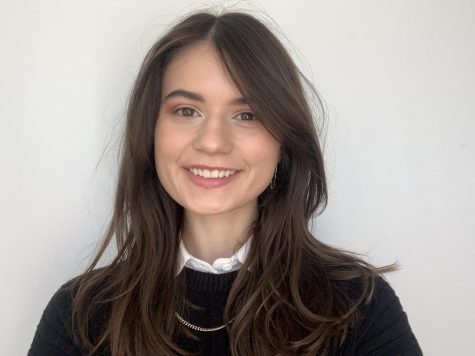Fordham Resumes Faculty Benefits Earlier Than Planned
Fordham announces it will resume its matching contributions to employee retirement funds on April 7. (Courtesy of Money.com)
The university announced that it would resume matching retirement fund contributions for all eligible faculty members, administrators and staff starting April 7.
In an email to the university community on March 16, Rev. Joseph M. McShane, S.J., president of the university, and Robert D. Daleo, chair of the board of trustees, said the Executive Committee of the Board of Trustees “voted overwhelmingly” to resume the retirement benefits program.
“The University had promised to revisit the suspension of its matching contribution as soon as our financial picture was clearer: with the March census — a triannual count of the students enrolled in our various programs — completed, the Board has acted on that promise,” wrote McShane and Daleo.
The university initially intended to continue this suspension through the end of June. Its decision to resume matching retirement contributions cuts several months off from the original plan. “Though the pandemic is not over yet, and the University is still feeling its effects, we believe that this step was a necessary one for our faculty and staff. Their efforts in keeping our students engaged and enrolled made the difference between a challenging year and an impossible one,” wrote Mcshane and Daleo.
The Board of Trustees first voted to temporarily suspend its contributions to retirement funds on Oct. 27, citing the financial strain on the university caused by the pandemic as its reason for the decision. “As you may also know, as a result of vigorous cost-cutting, the University was able to trim approximately $96 million from that figure. Even after taking these actions, however, the University still faced a stubborn $9 million gap in the budget. The Board of Trustees has taken this step in an effort to minimize other actions that could have a more direct effect on the core mission of the University,” McShane wrote in an email to the university community on Oct. 28.
The decision sparked protest from some members of the Fordham community, including an online petition started by a group called Fordham Students Against Austerity calling for the immediate resumption of retirement contributions.
The Faculty Senate also advocated for a return to negotiations after the suspension was announced. The Senate began soliciting contributions from faculty members in late December for a potential lawsuit against the university after several attempts to resume negotiations with the Board of Trustees proved ineffective. According to Chapter 8, Article 4 of the university statutes, the Faculty Senate is supposed to negotiate with the university administration on matters concerning faculty salaries and benefits.
It is unclear whether the Faculty Senate plans to continue to prepare a legal case against the university in light of its decision to end the suspension of retirement contributions earlier than planned. The Faculty Senate did not respond to The Ram’s request for comment.
Dr. Patricio Meneses, president of the advocacy chapter of the American Association of University Professors at Fordham, said he welcomed the university’s decision to resume its retirement contributions earlier than planned. He said it was clear that the university had estimated more financial losses due to the COVID-19 pandemic than it actually experienced and adjusted its plans accordingly.
It is not yet clear whether the university plans to retroactively contribute retirement funds for the months the suspension was in place. Meneses, for his part, said he believes the university will do so.
However, Meneses said there should still be a conversation surrounding the university’s failure to maintain an open line of communication with the Faculty Senate over its decision to suspend retirement contributions. “I still would like to have a conversation about how the process took place to ensure that in the future, there is no breach of contract,” said Meneses.
Meneses said that he feels the university’s decision marks the first step in regaining trust and clear communication going forward. “The conversation between the administration and the faculty has not been as open as it could be,” said Meneses. “That’s my biggest concern — shared governance. It’s about working together to really resolve issues and move forward.”

Abbey Delk is a junior from Wheeling, West Virginia, double majoring in English and journalism and minoring in film & television. Her career at the...










































































































































































































